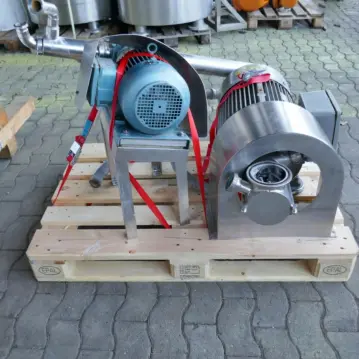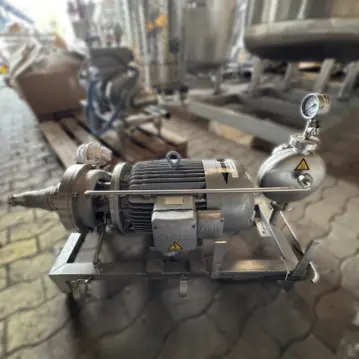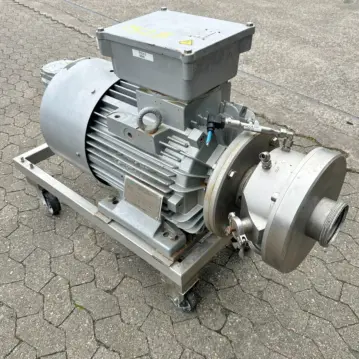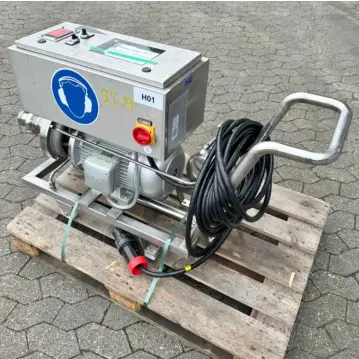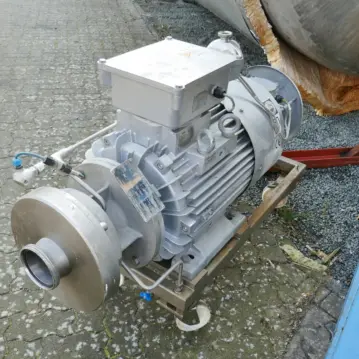Homogenizers
We offer immediately available used homogenizers & dispersers from stock. Benefit from the inexpensive purchase of a used system, which we can ship worldwide at short notice.
Products
-
ex-proof
similar to Inline-homogenizer
includes a separate pump
-
Drive power: 11 kW
Areas of application: Mixing / homogenizing and pumping of emulsions and pastes
-
Manufacturer: NETZSCH Vakumix
Type: LambdaVita 3 mobile
Year of construction: 2018
Drive power: 37 kW
Areas of application: Mixing/homogenizing and pumping around emulsions and pastes
-
- Continuous homogenizer GR2 DHOLF
- Brand: VAKUMIX
- Electrical connection: 400V / 50 Hz 11KW
- Max. temperature: 150°C (product room)
- for mixing/homogenizing and pumping around emulsions and pastes
-
Manufacturer: Vakumix
Type: DHOLF GR3
Drive power: 31 kW
Maximum pressure product: 2 bar (overpressure)
Maximum product temperature: 133° C
Areas of application: Mixing/homogenizing and pumping around emulsions and pastes
